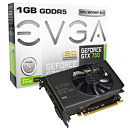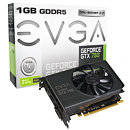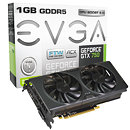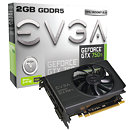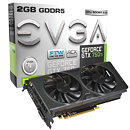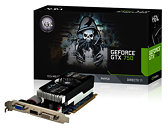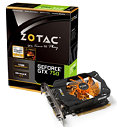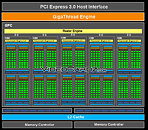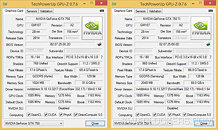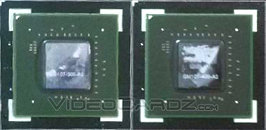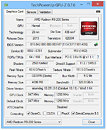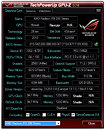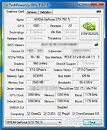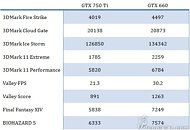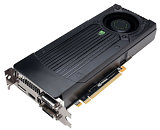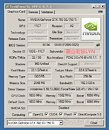
Galaxy Launches its GeForce GTX 750 Series Lineup, Including a Low-Profile Card
Galaxy Microsystems, a leading manufacturer of the world's highest performing graphics cards, announced today the Galaxy GeForce GTX 750 GC 1GB and GTX 750 Ti GC 2GB-the 1st graphics cards built with the latest cutting-edge Maxwell GPU architecture. The GTX 750 GC is armed with an impressive 512 CUDA cores and 1GB of GDDR5 at 5 GHz, while the GTX 750 Ti GC is fully loaded for even more intense hi-res gaming with 640 cores and 2GB of 5.4 GHz GDDR5 ram. Both cards are factory overclocked more than 100 MHz beyond stock speeds and feature the new whisper silent Phantom dual fan cooler on an extended PCB of Galaxy's own custom in-house design.
The new hyper-efficient architecture reduces power usage to a fraction of that in previous generations, and Galaxy's unique design adds 6-pin auxiliary inputs with enhanced 3+1 phase power delivery to provide additional overclocking headroom for enthusiasts. Both the GTX 750 GC and GTX 750 Ti GC include support for the most advanced new gaming technologies such as NVIDIA G-Sync, ShadowPlay,and PC Streaming through NVIDIA SHIELD.
The new hyper-efficient architecture reduces power usage to a fraction of that in previous generations, and Galaxy's unique design adds 6-pin auxiliary inputs with enhanced 3+1 phase power delivery to provide additional overclocking headroom for enthusiasts. Both the GTX 750 GC and GTX 750 Ti GC include support for the most advanced new gaming technologies such as NVIDIA G-Sync, ShadowPlay,and PC Streaming through NVIDIA SHIELD.





